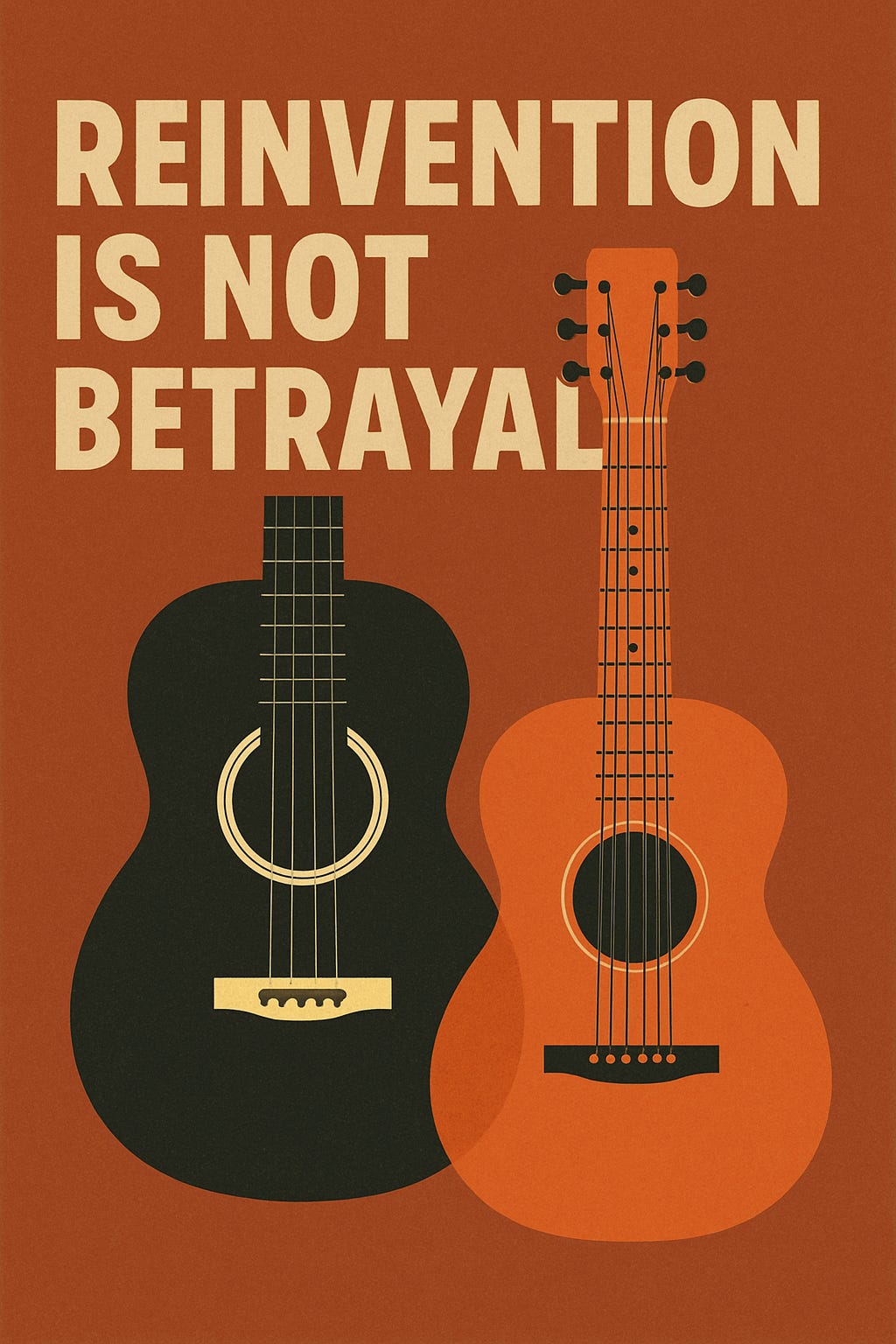Beyond Music: The Art of Building Immersive Universes
Lesson 4: Reinvention is Not Betrayal
There's a myth in creative circles that consistency means safety. It doesn't. It means invisibility.
The marketplace rewards evolution, not repetition. The artist who makes the same statement ten times isn't an artist—they're a factory.
Swift didn't ask permission to abandon her twang for synth beats. She simply recognized that authenticity isn't about genre loyalty—it's about truth-telling in different languages.
Your audience isn't falling in love with your category. They're falling in love with your perspective.
The shift from country to pop wasn't a marketing ploy. It was the next necessary sentence in an ongoing conversation. That's why her audience followed. Not because they loved the new sound, but because they recognized the voice behind it.
Most creators mistake their moment for their identity. They believe the thing that made them must continue to make them. They end up trapped in amber—perfectly preserved and utterly irrelevant.
The alternative? See your work as evolutionary biology. Adapt or disappear.
The audience that truly matters doesn't want your greatest hits on repeat - at least not in your prime. They want to witness your becoming. They want the privilege of saying, "I was there when..."
Only later, when nostalgia becomes its own currency, will they crave the familiar notes. But you earn that nostalgic devotion precisely because you chose evolution when you were actively defining yourself as an artist.
Your genre isn't a prison sentence. It's just today's vocabulary.
Tomorrow deserves new words.
Next up, in this series is Lesson 3 titled “Art and Enterprise Are Not Enemies”.


